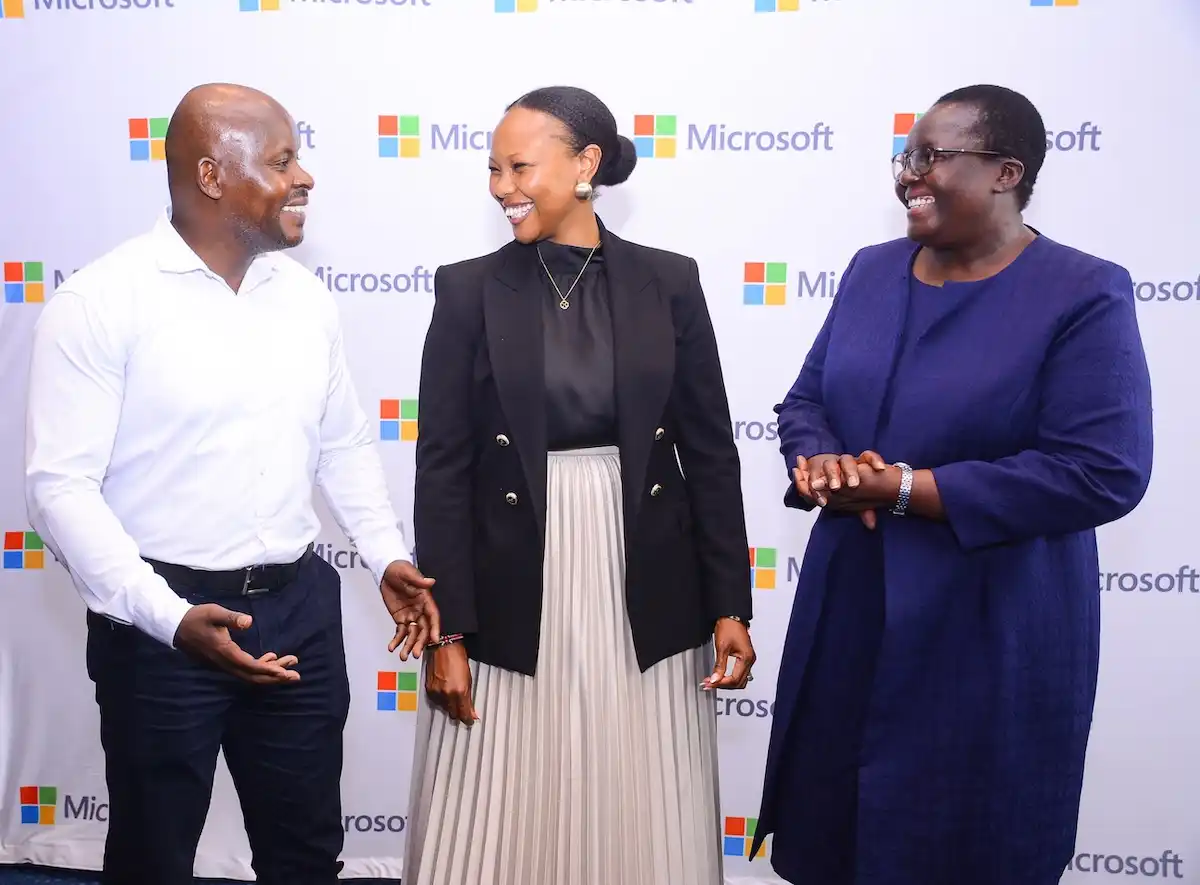Microsoft has announced the launch of a new skilling initiative in Kenya, a groundbreaking programme aimed at training 1 million people in AI and cybersecurity by 2027. This initiative is part of Microsoft’s commitment to democratise AI and empower individuals with the skills needed to thrive in the digital economy, aligned with Kenya’s Vision 2030 and Digital Masterplan.
With a population of approximately 50 million, a median age of 19 years, and a significant portion of the workforce employed in the informal sector, Kenya presents a unique opportunity to bridge the skills gap and drive economic growth through digital transformation.
Kenya’s Vision 2030 and the Kenya Digital Masterplan underscore the country’s commitment to enhancing digital skills and fostering innovation across various sectors. Top industries, including agriculture, telecommunications, and financial services, are poised for significant AI transformation, making Kenya an ideal hub for AI talent.
This skilling initiative aims to have a significant impact on Kenya’s digital economy by fostering innovation and digital transformation across sectors including government, industry, education, and non-profit organisations. By 2027 the initiative aims to empower SMEs and industry professionals with the skills needed to integrate AI into their operations, driving economic growth and job creation, while enhancing the quality of education by building AI capacity among educators and students. The skilling programme will foster innovation and digital transformation across key sectors and improve service delivery and efficiency in government agencies through the adoption of AI-driven solutions.
“Kenya’s vibrant tech ecosystem and commitment to digital transformation make it the perfect location for our skilling initiative. We are excited to empower individuals, SMEs and organisations with the skills needed to thrive in any sector including tech,” says Winnie Karanu, AI National Skills Initiative Director, Kenya, Microsoft.
Key Highlights of the Initiative:
- Training 1 Million People: The initiative aims to train 1 million individuals in AI and Cybersecurity, leveraging platforms like the Kenya Skills Hub and Smart Academy for training.
- Government Collaboration: Microsoft will partner with key government agencies, including the Ministry of Information Communication and the Digital Economy (MOICT) and the Public Service Commission (PSC), to drive citizen skilling and support AI and Cybersecurity policy development, leveraging platforms like the Ajira program and the Jitume centres for training.
- Focus on Education: The initiative will include comprehensive AI education programs for K-12 students, university faculty, and vocational training institutions, ensuring a robust pipeline of AI talent. AI University tours and faculty immersion programmes will help build capacity in the country’s universities. Microsoft will also launch AI Research catalyst programmes and AI Innovation Labs with strategic universities.
- Enable social, environmental, community and impact organisations: The programme aims to build the capacity of skilling organisations and non-profits like KEPSA, Stanbic Kenya Foundation, Power Learn project & Africa Centre for Women in ICT (ACWICT), to drive AI skilling at scale for Kenya’s youth and underserved communities.
- Investment in Key Industries: The programme will target critical industries such as agriculture, and financial services, driving AI transformation and skills development for economic growth.
The AI Skills Navigator is a flagship skilling destination for learners seeking information and content about AI skilling opportunities. It brings together learning content from across Microsoft to provide a learner-focused experience. Live bootcamps and in-person training sessions held in partnership with MOICT will drive citizen skilling at scale, equipping learners with foundational and advanced AI skills.
Comprehensive AI education programmes for K-12 students and teachers, in partnership with the Ministry of Education and other educational institutions, will enhance the quality of education by building AI capacity among educators and students, preparing the next generation for the digital future.
This upskilling of educators will extend to a Faculty Immersion Programme to enhance university faculty AI teaching capabilities and support AI research initiatives, along with funding and support for AI research projects in collaboration with universities and research institutions through the AI Research Catalyst Programme.
The AI skilling initiative builds on other programmes in Kenya to build digital literacy and technology skills, also supported by Microsoft. Currently, the Government of Kenya, UNDP, the Public Service Commission and Microsoft have co-developed a Centre of Competence that’s poised to transform public service delivery. The centre aims to train 300,000 public servants over the next three years, with 50,000 policy makers, organisation leaders and users being trained in the first year.
In collaboration with industry organisations such as KEPSA and the Kenya Bankers Association, a team is spearheading cybersecurity campaigns to educate users and organisational leaders on AI and cybersecurity, while for industry leaders the team will provide in-depth AI and cybersecurity training in conjunction with ALN law firm and other partners.
Through its Africa Development Centre, Microsoft is also partnering with Cyber Shujaa to train 100 youth in cybersecurity, with the goal of improving the cybersecurity talent pipeline in the technology sector. This programme is being run in collaboration with Serianu and United States International University Africa (USIU).
“Skilling at scale supports the Kenyan Government’s goal to firmly position Kenya as a global leader in AI talent, and it reaffirms Microsoft’s ongoing commitment to building the digital skills needed to position Kenya for long-term success in the global digital economy,” adds Karanu.
Also Read: How African universities can fortify defenses against the growing threat of cyber attacks



